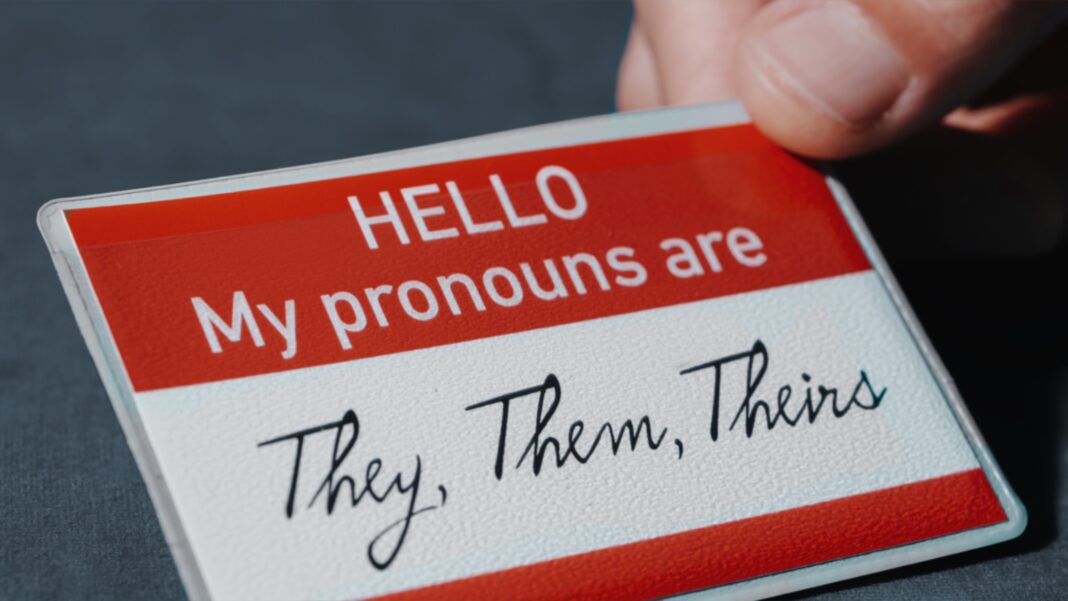I’m sure most of us never expected to hear much about pronouns after our high school English classes. However, over the last decade, pronouns have escaped from those classrooms and seem to have taken over our society, constantly being discussed on social media, news networks, and even on the floor of Congress!
And though you may have thought pronouns were difficult to remember in grade school, today they are even more confusing.
Traditionally, personal pronouns refer to the sex of the person: male pronouns are he/him, female pronouns are she/her, and a group’s pronouns are they/them. Today, according to many liberals, an individual’s preferred pronouns can be whatever comes to mind, being based on a person’s “gender” rather than a person’s sex.
This means an individual can change their pronouns merely if they believe their gender is different from their sex (e.g., female rather than male), which leads to the chaos we see today. “Hi, my name is _____, and my pronouns are she/him . . . or maybe it/itself, or ze/zeir, or ey/em, or clown/clownselves.” (Yes, that last one is real!)
The Problem
This pronoun revolution is part of the overarching LGBTQI+ agenda, which has been devastating to American society in many areas, including language. As I have discussed in a previous article, words have meanings, and haphazardly changing their definitions erodes those meanings. In order to have proper communication, all speakers of a language must be able to clearly understand what other speakers are saying.
Such clear communication is lost when masculine or feminine personal pronouns no longer refer to biological men and women respectively.
As philosopher Daniel Moody argues, males cannot enter a female restroom because “as soon as we permit males to enter, the restroom ceases to be the female restroom. Sure, it still has the word ‘Female’ on the door, but its function has changed. Likewise, pronouns cease to be pronouns as soon as we de-sex them.” Such reckless destruction of pronoun usage dangerously provides a slippery slope, especially in the legal realm, where words must have clear and specific meanings.
As you probably know, the LGBTQI+ agenda has divided communities, families, and even churches over the last decade. The Bible clearly condemns LGBTQI+ practices, including homosexuality and transgenderism; yet many Christians are indifferent about these issues, and some even play the preferred-pronoun game, referring to transgender “women” as she/her rather than he/him, even though these individuals are biologically male. CLICK HERE TO CONTINUE


No comments:
Post a Comment
THANK YOU